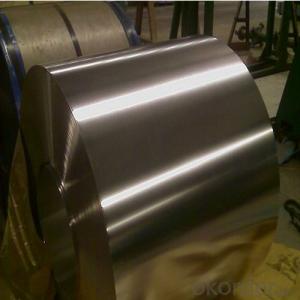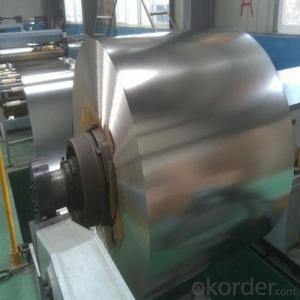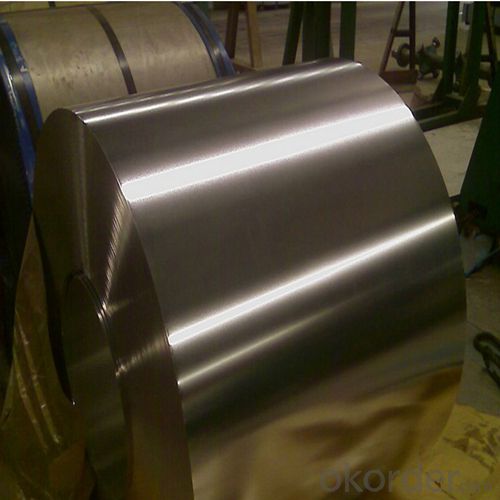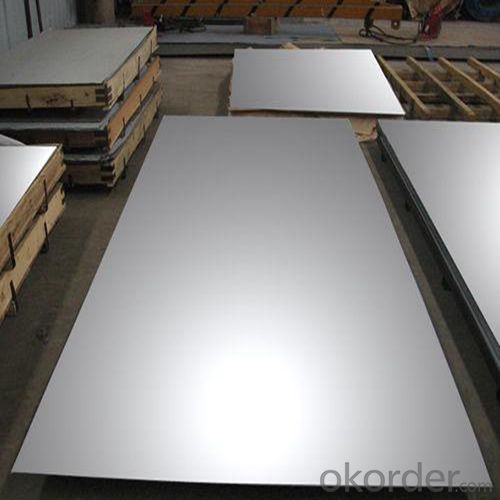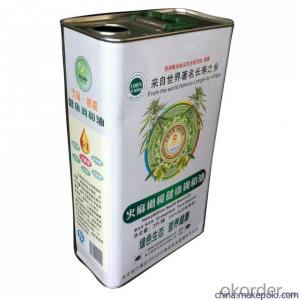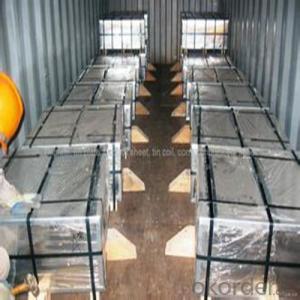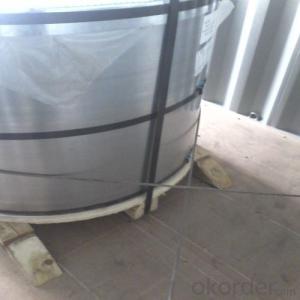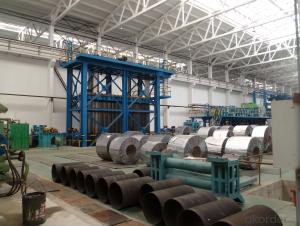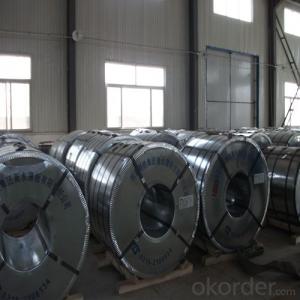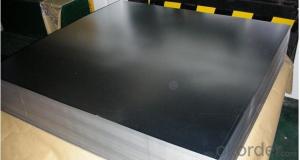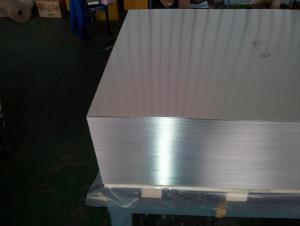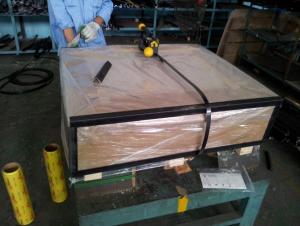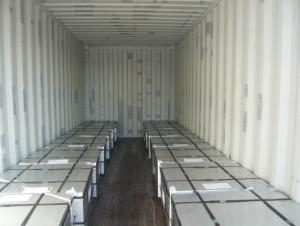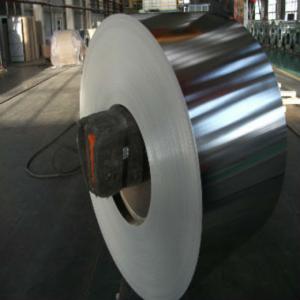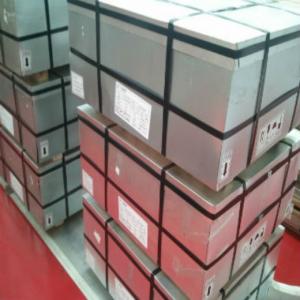Electrolytic Tinning Plate for Can Making in High Quality
- Loading Port:
- Tianjin
- Payment Terms:
- TT OR LC
- Min Order Qty:
- 25 unit
- Supply Capability:
- 7000 unit/month
OKorder Service Pledge
OKorder Financial Service
You Might Also Like
1.Structure of Electrolytic Tinning Plate for Can Making in High Quality Description
Electrolytic Tin Plate Coils and Sheets for Foods Metal Packaging, is one thin steel sheet with a coating of tin applied by electrolytic deposition. Tinplate made by this process is essentially a sandwich in which the central core is strip steel. This core is cleaned in a pickling solution and then fed through tanks containing electrolyte, where tin is deposited on both sides. As the strip passes between high-frequency electric induction coils, it is heated so that the tin coating melts and flows to form a lustrous coat.
2.Main Features of the Electrolytic Tinning Plate for Can Making in High Quality
Appearance – Electrolytic Tin Plate is characterized by its beautiful metallic luster. Products with various kinds of surface roughness are produced by selecting the surface finish of the substrate steel sheet.
Paintability and printability – Electrolytic Tin Plates have excellent paintability and printability. Printing is beautifully finished using various lacquers and inks.
Formability and strength – Electrolytic Tin Plates have got very good formability and strength. By selecting a proper temper grade, appropriate formability is obtained for different applications as well as the required strength after forming.
Corrosion resistance – Tinplate has got good corrosion resistance. By selecting a proper coating weight, appropriate corrosion resistance is obtained against container contents. Coated items should meet 24 hour 5 % salt spray requirement.
Solderability and weldability – Electrolytic Tin Plates can be joined both by soldering or welding. These properties of tinplate are used for making various types of cans.
Hygienic – Tin coating provides good and non toxic barrier properties to protect food products from impurities, bacteria, moisture, light and odours.
Safe – Tinplate being low weight and high strength makes food cans easy to ship and transport.
Eco friendly – Tinplate offers 100 % recyclability.
Tin is not good for low temperature applications since it changes structure and loses adhesion when exposed to temperatures below – 40 deg C.
3.Electrolytic Tinning Plate for Can Making in High Quality Images
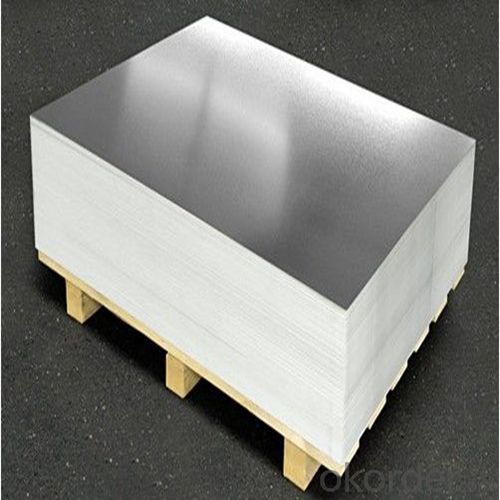
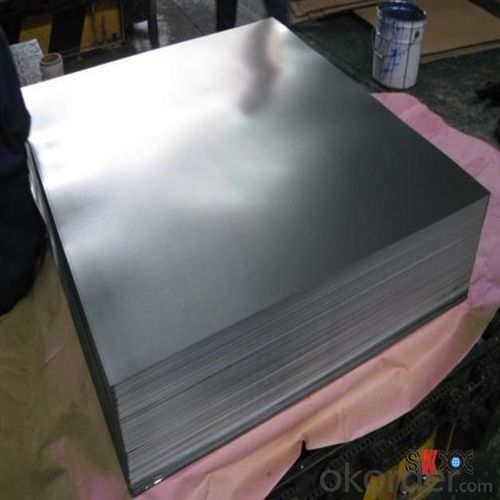
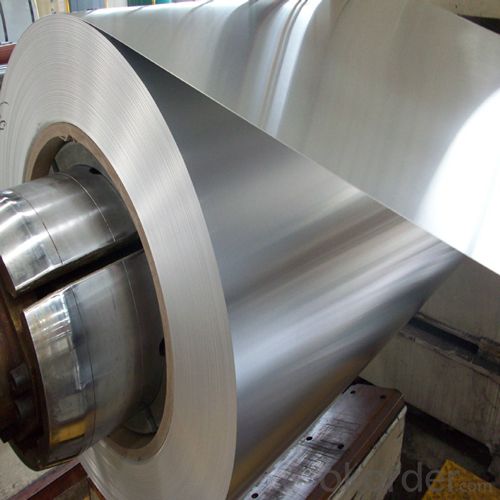
4.Electrolytic Tinning Plate for Can Making in High Quality Specification
Standard | ISO 11949 -1995, GB/T2520-2000,JIS G3303,ASTM A623, BS EN 10202
|
Material | MR,SPCC |
Thickness | 0.15mm - 0.50mm |
Width | 600mm -1150mm |
Temper | T1-T5 |
Annealing | BA & CA |
Coil Inner Diameter | 508mm |
Weight | 6-10 tons/coil 1~1.7 tons/sheets bundle |
Passivation | 311 |
Oil | DOS |
Surface | Finish,bright,stone,matte,silver |
5.FAQ of Electrolytic Tinning Plate for Can Making in High Quality
-How to place .an order or contact you ?
Please send us Email. we will give you a quick response in seconds .
- How is your quality ?
All our quality is prime even the secondary quality . We have many years experience
In this field with serious quality control standard . Advanced equipment, We welcome your visit to our factory .
- Q: What are the main challenges in tinplate coating?
- One of the main challenges in tinplate coating is achieving consistent and uniform coverage on the surface of the tinplate. This requires specialized equipment and precise control of the coating process parameters, such as temperature, speed, and viscosity of the coating material. Additionally, maintaining adhesion between the tinplate and the coating is another challenge, as any defects or inconsistencies in the adhesion can lead to corrosion or peeling of the coating. Lastly, ensuring that the coating is resistant to external factors such as moisture, chemicals, and abrasion is crucial for the long-term durability and performance of tinplate products.
- Q: How does tinplate contribute to the durability of construction materials?
- Tinplate contributes to the durability of construction materials by providing a protective layer that is resistant to corrosion and rust. This helps to prevent deterioration and prolongs the lifespan of the materials, making them more durable and able to withstand harsh environmental conditions.
- Q: How does tinplate contribute to the reduction of food waste?
- Tinplate contributes to the reduction of food waste by providing a protective and durable packaging solution for various food products. Its corrosion-resistant properties ensure the longevity of the packaging, preventing spoilage and contamination. Additionally, tinplate's ability to maintain the freshness and quality of food for an extended period helps reduce waste caused by premature expiration.
- Q: How can tinplate be rustproof? Products must not be oil
- RP014C-23A thin layer quick drying antirust oil has strong salt fog resistance and acid fast fog performance, which can meet the requirements of severe marine transportation rust prevention. RP014C-23A thin layer fast drying rust proof oil meets the environmental requirements of the export market, such as the EU ROHS directive.
- Q: How does tinplate perform in high-temperature applications?
- Tinplate performs well in high-temperature applications due to its excellent heat resistance. It can withstand elevated temperatures without warping or deforming, making it suitable for various industrial and food processing operations that involve heat.
- Q: How is tinplate coated for furniture?
- Tinplate is typically coated for furniture by a process called electroplating. The tinplate is immersed in an electrolyte solution, and an electric current is applied to deposit a layer of tin onto the surface. This coating enhances the durability and corrosion resistance of the tinplate, making it suitable for furniture applications.
- Q: What are the common closure mechanisms for tinplate containers?
- The common closure mechanisms for tinplate containers include screw caps, snap-on lids, and lever-lid closures.
- Q: What are the different types of tinplate welding techniques?
- There are primarily two types of tinplate welding techniques: spot welding and seam welding. Spot welding involves the use of electrical resistance to join two tinplate sheets at specific points, while seam welding is a continuous process that creates a continuous weld along the length of the tinplate sheets.
- Q: What are the main regulations governing the use of tinplate in different industries?
- The main regulations governing the use of tinplate in different industries vary depending on the country and industry. However, some common regulations include ensuring food safety and compliance with packaging standards, such as the Food and Drug Administration (FDA) regulations in the United States. Additionally, there may be regulations related to environmental impact, recycling, and waste management. It is essential for businesses to stay updated with local regulations to ensure the safe and compliant use of tinplate in various industries.
- Q: How does tinplate affect the overall branding of products?
- Tinplate can significantly impact the overall branding of products as it offers various advantages. Its sleek and glossy appearance adds a premium and sophisticated touch to the packaging, enhancing the perceived value of the product. Additionally, tinplate provides excellent protection against moisture, light, and oxygen, ensuring the quality and freshness of the contents. This durability and protective feature associated with tinplate packaging help to build trust and credibility among consumers, reinforcing the brand image. Furthermore, tinplate's versatility allows for unique and eye-catching designs, facilitating differentiation and attracting consumers' attention on store shelves. Overall, tinplate plays a crucial role in elevating the branding of products, creating a memorable and positive consumer experience.
Send your message to us
Electrolytic Tinning Plate for Can Making in High Quality
- Loading Port:
- Tianjin
- Payment Terms:
- TT OR LC
- Min Order Qty:
- 25 unit
- Supply Capability:
- 7000 unit/month
OKorder Service Pledge
OKorder Financial Service
Similar products
Hot products
Hot Searches
Related keywords
